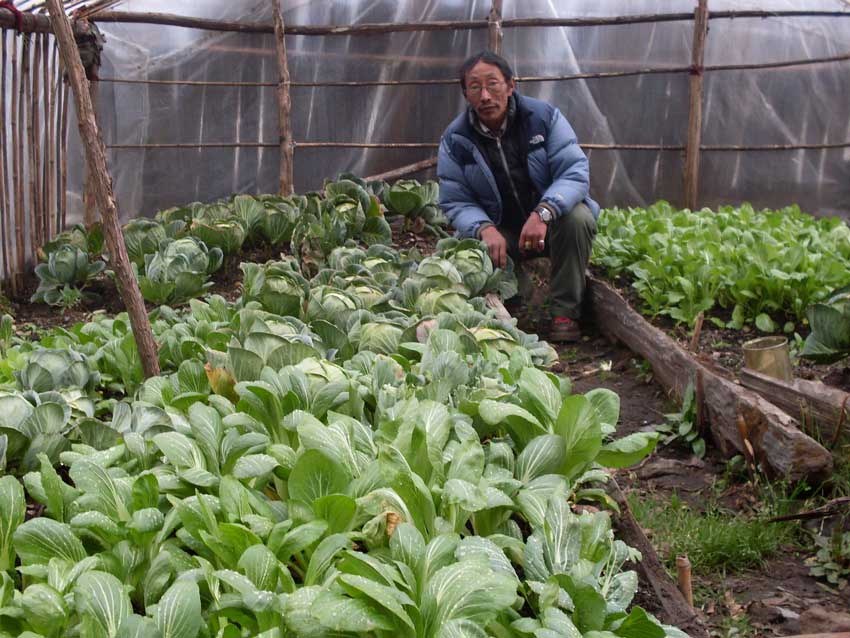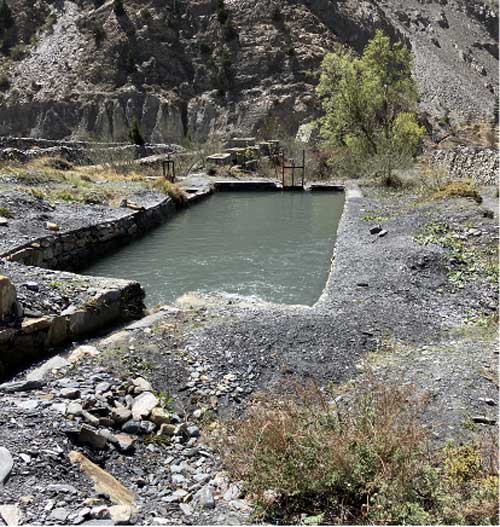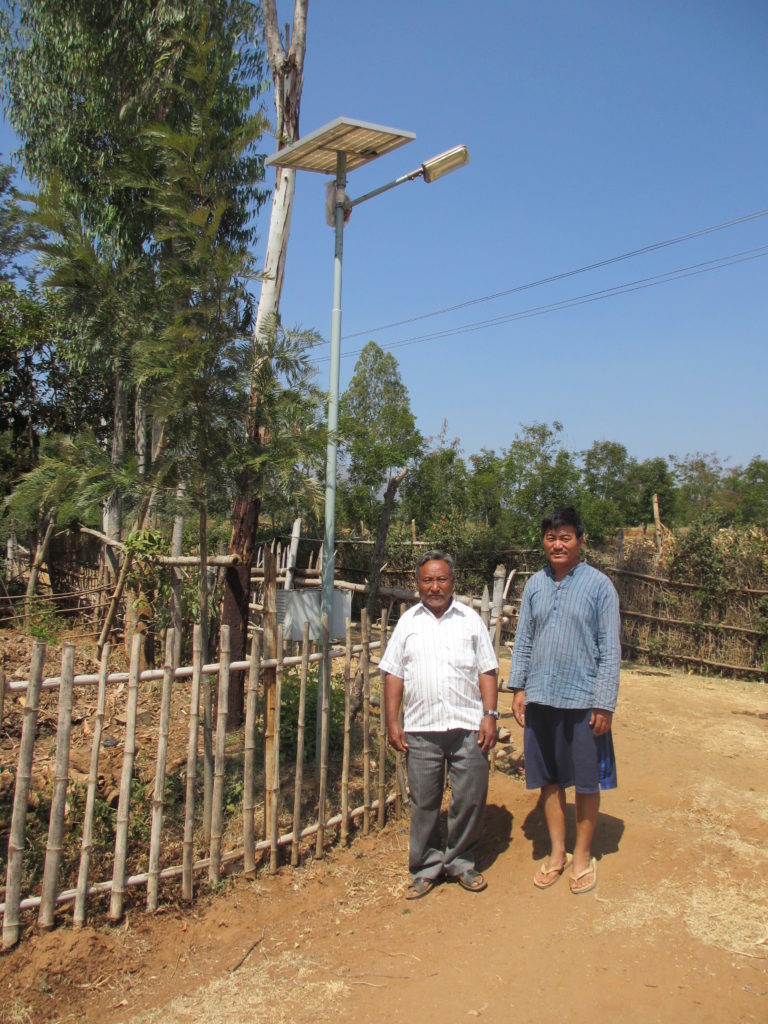PROJECTS
Help Tibet works in partnership with the exiled Tibetan community in India and Nepal.
Over the years we have been supporting the resolution of basic problems, such as clean water and sanitation in the settlements, and in recent years we have been able to move towards enabling the Tibetan community in exile to be more self-sufficient through community business enterprises and youth training.
Endeavouring to help the Tibetan community further towards self-sustainability, we have funded educational improvements through our funding of school libraries, science laboratories and kindergartens.
As a general rule, the settlements and villages we work with contribute a small percentage of the cost of each project as well as providing any unskilled labour required, thereby giving them a stake in the sustainability of the project.
Below you’ll find some examples of the sort of projects we support.
Care of the old and vulnerable
Thonden Ling was the first old people’s home to be built with financial support from us. It was also the first old people’s home to be built in Nepal and housed up to 38 residents. Following this, a home for 60 residents was built in Jampaling Camp with funds from another organisation but using our expertise to plan a building that was suitable for the older generation. Building on our experience a third home was built with our support in India using environmentally friendly methods. The homes are all at the centre of their communities.
Although we will continue to support old people in need of residential care, the numbers needing this support have lessened over the years. Our focus is increasingly directed towards supporting those old people and disabled people who prefer to stay in their own homes, especially those living in high altitude and remote areas of the Himalayas.

Business opportunities
In Jampaling Tibetan settlement in Nepal, Help Tibet gave a grant to set up a noodle factory, which provided the equipment and initial training for women to enable them to make and sell their produce both to their own community and the surrounding communities.
We have also provided opportunities for families to set up small businesses with interest free loans. These include restaurants/community kitchens, electrical shops, general stores, a fabric business and incense factories.
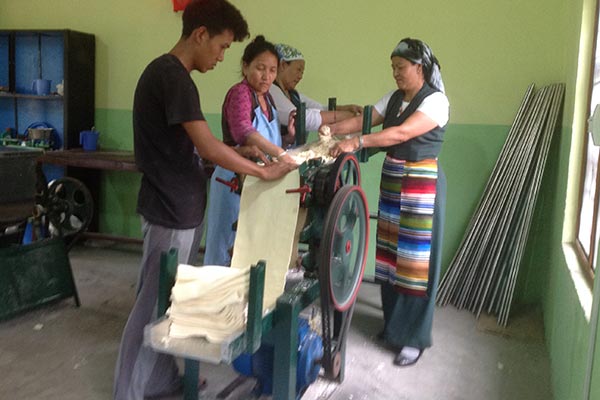
Education
We have supported programmes to modernise kindergartens. This includes staff training, maintenance of and improvements to facilities, as well as the provision of new equipment. Our aim is to help create a lively and imaginative environment where children will receive an excellent foundation for their future education.
Our library programme was started to encourage young children to read. During the initial years, several primary school libraries were set up and a number of librarians were trained. The results have been astounding with children desperate to get to their libraries whenever possible, even after school. Not only has their classwork improved immensely but also their self-confidence and ability to form opinions, which they can now put forward.
Following the success of the junior libraries, Help Tibet has now given grants to set up middle and senior school libraries. The middle school libraries are for ages 11 to 14 and the senior for 15 to 18 years old.

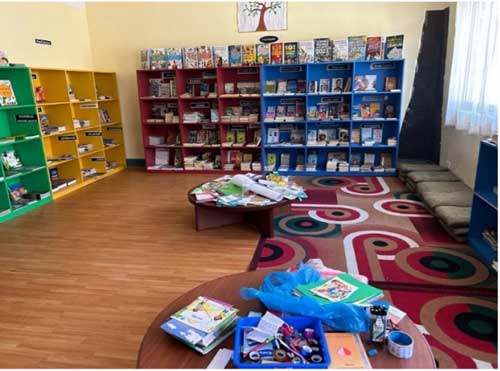
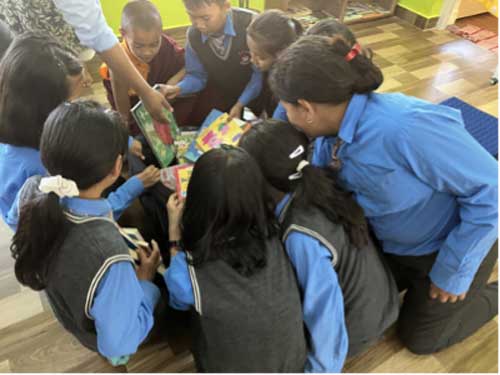
Science laboratories are an important area of general education and Help Tibet has already provided several grants for schools to modernise their labs. In Srongsten School in Kathmandu, the lab has been updated with new facilities so that all children can participate in experiments at the same time. Teachers now have all the necessary equipment for the children to follow the entire curriculum.
All these programmes are ongoing, with budgets being put in place once projects are completed to enable continuing improvements to be funded.
We have sponsored many different courses for students to provide them with a future that will enable them to be able to support themselves and their families. Courses provided have included physiotherapy, osteopathy, nutrition, driving, cooking, beauty, secretarial, carpentry, etc.

Community Facilities
Clean water is a scarce resource in the Tibetan community in both India and Nepal and Help Tibet has supported the installation of water facilities not only for the residents of the settlements but also for their animals. Mains water is often scarce and availability as little as ½ an hour every few days during the dry season. Many Tibetan communities are only able to survive because of the installation of the water storage facilities we have funded.
Electricity is another resource which can be hard to come by on a regular basis. This is particularly important in some of the settlements that are close to the jungle in India. By providing funds for solar street lighting, we can help to protect the residents in their villages and camps from wild elephants, bears, tigers, etc on a daily basis.
Help Tibet continues to fund solar energy solutions in many areas which include solar cookers, indoor solar lighting and solar powered water distribution to homes. Recently Help Tibet funded the installation of electricity meters to 92 residential homes so that residents can monitor how much they consume, for electrical consumption other than lighting, which is already solar.
To help the Tibetan community towards self-sustainability, farming projects have enabled communities to support themselves and bring in income for their communal needs. For instance, every family in Walung, has their own greenhouse that enables them to have fresh vegetables all year round with any surplus being sold to the wider community. In another high altitude Himalayan Tibetan community, Tserok, now has a thriving apple business which has been developed over the years by the community, starting with clearing the stones from the land and putting in irrigation channels.
